Overview

When anyone has pain in their chest, they need to realize that this could be serious, thus, they should seek medical attention as soon as possible. In many cases, the pain that is felt in the chest is caused by weak blood flow into the heart. This weak flow leads to angina or a block in the coronary arteries resulting in a heart attack. However, there are other causes of heart attack, such as issues with the lungs, the esophagus, bone issues, and even skin issues.
Heart Attack Symptoms
When a person has a heart attack, the symptoms they often show are:
- A severe pain in the center of the chest behind the breastbone. It may feel as though a heavy weight is on your chest, squeezing of the chest, a choking feeling or tightening of the muscles in the chest.
- The pain may be spreading to the arms, neck, throat, jaw or shoulders
- Sweating
- May feel nauseous
- Breathing is often short
- The symptoms may last up to 10 to 15 minutes or longer
Angina
Angina is chest pain that is often short lived. This happens when there is not enough blood going into the heart, usually when the heart is having to work harder. For example, after exercise, an emotional time, cold weather or even after eating a large meal. In most cases, the pain will ease once the person gets some rest.
Angina usually does not inflict damage upon the heart. The pain being felt is caused by the narrowing of the coronary artery. IF this narrowing happens a lot though this could result in the heart becoming damaged. There are millions of people who die from heart attacks every year, due to not knowing the signs of a heart attack. This is uncalled for as new medical procedures can help to save lives.
Risk Factors for Coronary Artery Disease
Coronary artery disease can lead to damage to the heart, resulting in a heart attack. The risk factors include:
- High blood pressure
- Smoking
- Lack of exercise
- Diabetes
- Family history of this disease
- Men are more at risk than women
- The age of a person as they get older, they are at a higher risk
However, a person who has none of these risk factors can also develop this disease.
Other Causes of Chest Pain
There are times in which chest pain is not associated with your heart. For example:
- Acid reflux or indigestion can lead to chest pain. This often is relieved by taking an antacid or drinking milk
- Strains in the chest muscle
- Inflammation around the ribs near the breast bone
- Shingles or Herpes can also cause chest pain before the rash develops
Related Video On Chest Pain
https://www.youtube.com/watch?v=s6UjblWqb0M
